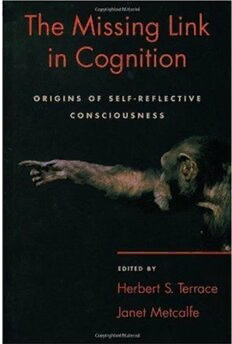
The Missing Link in Cognition: Origins of Self-Reflective Consciousness PDF
390 Pages·2005·3.888 MB·English
Most books are stored in the elastic cloud where traffic is expensive. For this reason, we have a limit on daily download.
Preview The Missing Link in Cognition: Origins of Self-Reflective Consciousness
Description:
How do we develop self-awareness, or a sense of self? One of the most popular theories is that language plays a major role: language and the narrative form allow us to develop a sense of self because this sense is dependent upon representational thought and the psychological manipulation of representations. Some scholars argue against this theory, claiming that more than language and representational thought is needed. Comparing human and animal cognition is a particularly powerful way of examining this disagreement; if animals possess self-awareness without having the representational linguistic capabilities of humans, then the comparison will provide significant evidence for the argument that language and narrative form do not play the only role, and that researchers may have overlooked a cognitive link. Terrace and Metcalfe propose to facilitate this work of some participants, such as Endel Tulving, Janet Metcalfe, and Daniel Povinelli, shows that self-awareness, metacognitions, and representational thought are unique to humans, while that of precursors to self-aware thought processes exist in non-human primates, the debate is likely to be lively and informative. This volume will be of great interest to researchers in cognitive, developmental, and social psychology.
See more
The list of books you might like
Most books are stored in the elastic cloud where traffic is expensive. For this reason, we have a limit on daily download.
